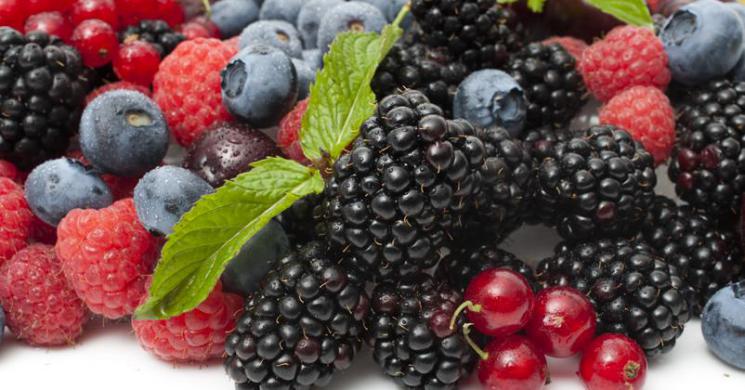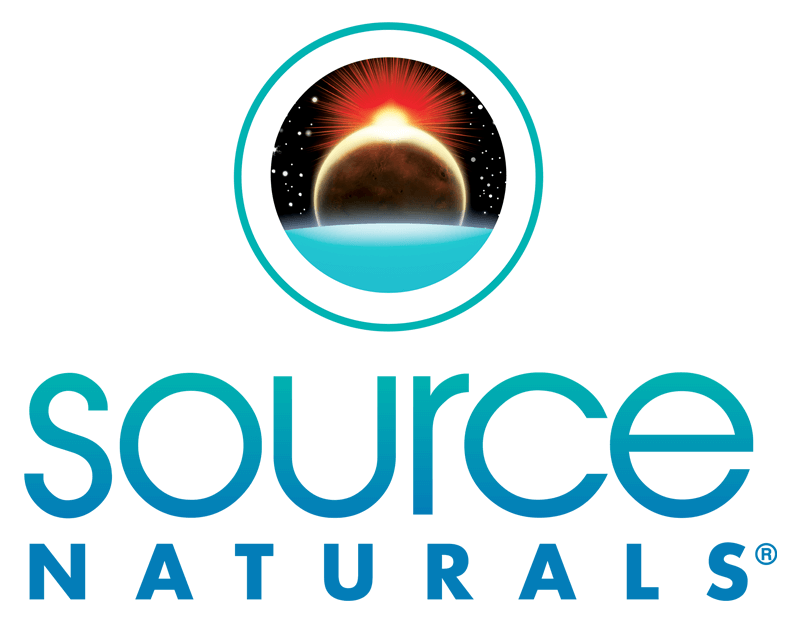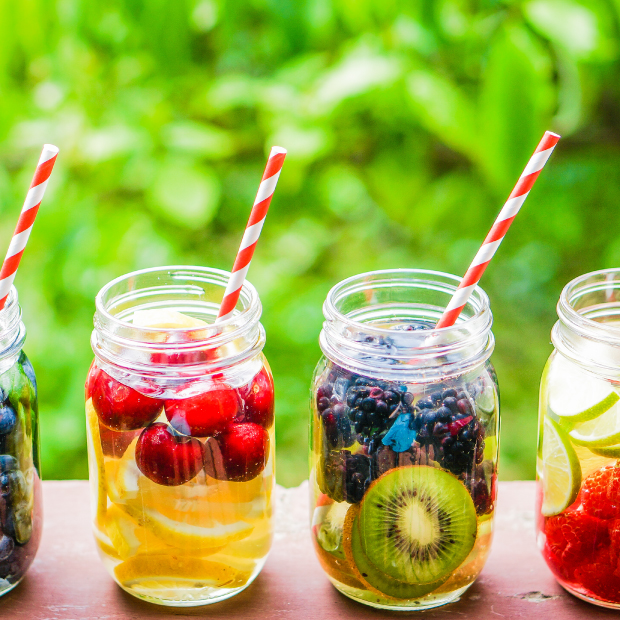
If berries aren’t part of your regular diet, you may be missing out on an array of health boosters. Bursting with nutrition, there are over 60 types of edible berries—ranging from the popular blueberries to the less widely known aronia, goji, and sea buckthorne. Known for their antioxidant power, preliminary research suggests many berries offer unique health benefits.
Berries are Bioactive
The secret to the benefits of berries is extremely high concentrations of bioactive healthy antioxidant compounds, classified as phenolics. Whole berry and whole berry extracts, not the pressed juice, are the most physiologically active sources of these compounds according to research.
Phenolic acids are plant metabolites widely spread throughout the plant kingdom. Recent interest in phenolic acids stems from their potential protective role, through ingestion of fruits and vegetables, against oxidative damage diseases (coronary heart disease, stroke, and cancers). Phenolic compounds are essential for the growth and reproduction of plants, and are produced as a response for defending injured plants against pathogens.
Health Benefits from Head to Toe
Nature in its wisdom has created many types of berries with unique colors and forms. Preliminary research suggests that each berry seems to have a specific task that it excels in and an affinity for aiding varying body systems and organs. For example, cranberries target the urinary tract; blueberries the brain; hawthorne berries the heart; aronia berries the liver and gallbladder; elderberries the white blood cells; sea buckthorne berries the skin, nails, and hair; and bilberry the eyes. For a closer look at the research, see extended article below.
Choose Your Berry and Enjoy
You can select your berries by their unique benefits, or let your taste buds be your guide. Choose organic berries if you can, and always wash your fruit thoroughly. Eat them whole in your oatmeal or blended into your smoothie. Any whole berry you decide to relish will ultimately serve your body for the good, deliciously defending your health into a ripe old age.
Berries to Try:
| Açaí | Chehalem berry | Hackberry |
| Acerola | Cloudberry | Honeysuckle** |
| Barbados cherry | Cowberry | Huckleberries |
| Barberry | Cranberry | Indian plum |
| Bayberry | Crowberry | Juneberries |
| Bearberry | Currant | Juniper berries |
| Bilberry | Dewberry | Ligonberry |
| Black chokeberry | Elderberry | Loganberry |
| Black currant | Foxberry | Marionberry |
| Blackberry | Goji berries | Mayapple |
| Blueberry | Gooseberry | Mountain cranberry |
| Boysenberry | Grapes | Sugarberry |
| Mulberry | Rose hips | Tayberries |
| Nannyberry | Salmonberry | Thimbleberry |
| Ollalieberry | Saskaton berries | West Indian cherry |
| Oregon grape | Sea buckthorne | Whortleberry |
| Persimmon | Service berry | Wild rose |
| Purple chokeberry | Shade berry | Wineberry |
| Raspberry | Strawberry | Youngberry |
| Red chokeberry | Strawberry Tree Berries* |
|
| Red currant |
* Different than strawberries. ** Some are edible, others are poisonous
Want to Know Even More About Berries? Read On!
Your Brain on Berries
An explosion of berry research targeting brain and nervous system support occurred when several studies showed the efficacy of berry consumption in treating brain and neurological disorders. In April 2010, a preliminary human clinical study was published, suggesting that daily blueberry consumption conferred some improvement in memory in older adults with mild signs of neurodegeneration. Later that year, another study was published demonstrating blueberry extract’s protection against beta amyloid oxidation in neurons.
In September 2012, a study published in the Journal of Medical Food described the significant inhibition of 2 enzyme pathways relating to central neuropeptide stability. These enzyme pathways are emerging therapeutic targets in neurology and psychiatry drug research. A mixture of whole blueberry and cranberry extracts, which enhanced the anthocyanin concentration of the 2 kinds of berries, was effective in controlling enzyme targets. There is a potential relevance to managing inflammatory and neurological targets with a diet of daily berry consumption. Blueberry, blackberry, goji berry, and black currants rich in anthocyanin and proanthocyanin compounds took center stage in studies targeting operative mechanisms in Parkinson’s, Alzheimer’s, and other neurodegenerative disorders. What might this mean to a person making food choices for his or her health and longevity? Well, the jury is still out on which berries, how much, and what type of outcomes can be expected, but it looks promising that eating berries dark blue, purple, or almost black in color may help reduce risks associated with aging brains and nervous systems.
Berries and Brawn
We do not usually classify foods that feed and protect our brains as the same foods that enhance our physical performance, but berries do double duty. They build both brain and brawn. A well-designed human crossover, placebo study on the effects of ingesting blueberries before and after strenuous exercise was conducted, looking at biomarkers of recovery and muscle strength. Thirty-six hours after ingestion, the “blueberry” group had significant increases in strength as well as decreases in muscle soreness compared to the placebo group. The blueberry smoothie study may benefit the fitness community, which is eternally looking for dietary interventions that enhance physical performance. Although blueberry seems to have the most current scientific support for exercise recovery, lychee berry from Tibet has had a long tradition of being used to enhance physical excellence. A 2013 study published in the Journal of Ethnopharmacology describes the significant anti-fatigue properties heralded with this berry, allowing for longer exercise time with faster recovery times.
Berries and Your Belly
The year 2013 produced 3 preliminary studies on the impact of blueberries on microflora in the colon. One study focused on fermenting the berries using beneficial bacteria. The blueberry “symbiotic,” as it was called, demonstrated promising activities on regulating and supporting gut flora. The interesting focus of these food studies on gut flora by blueberry points toward the importance of daily infusions of berries for the general health of the colon. The studies are in the early stages, looking at the potential of whole berries to modify gut microbiota. However, the implications for remediation of gut dysregulation are promising. Apparently berries are good for your belly. Blueberries are also an excellent source of fiber, and a handful of them on an empty stomach will do wonders for those suffering from constipation.
Berries and the Bladder
There has long been a controversy as to whether cranberry is effective in treating the urinary tract. Recent research indicates that the controversy arises from the discrepancy between the results achieved by the whole cranberry, and those achieved by the pressed juice. A fascinating human study comparing the efficacy of the whole berries versus the juice of the cranberries in treating urinary tract infections was published in the prestigious Journal of Nutrition in October, 2013. It seems that the whole berry, but not the pressed juice of the cranberry, may have a positive effect on decreasing the recurrence of urinary tract infections in women who experience these types of frequent health issues. While the whole cranberry group showed a significant reduction in the recurrence of urinary tract infection, the researchers were at a loss to explain why. Scientists need to conduct more studies to find exactly what the mechanisms of action are for the recurrence reduction. Rest assured, the whole cranberry, traditionally used for hundreds of years to balance urinary tract health, continues to demonstrate its prowess in scientific studies as well as in the general population.
Lose Your Bifocals with Berries
We may not understand how the process of healing and remodeling occurs, but berries do indeed have compounds that make them unique and specialized in their effects on our biochemistry and organ function. This has been witnessed through hundreds of years and thousands of observed human and animal cases. Just as cranberry has an affinity for the urinary tract, preliminary research is promising in showing billberry’s affinity for the eyes. Billberry’s dark pigmentation, which it has in common with blueberries and black currents, is created by a special class of phenolics called anthocyanins. There has been a continuing upsurge of focused research on bilberry and its mechanism of action in an attempt to realize a deeper understanding of its effects on visual degenerative issues, such as macular degeneration and cataracts. It’s important to remember the eyes are an extension of the brain, and these types of tissues are slow to repair and remodel. Taking bilberry, or any other food or supplement for the eyes requires time to see changes and lasting results. The good news is that berries are safe and usually support your general health on the whole. So, there are only positive side effects from purposefully taking a berry such as bilberry for more extended periods of time.
References
Ray Sahelian, M.D., Phenolic Compounds and Acids
Nat Prod Rep. 2009 Aug;26(8):1001-43. doi: 10.1039/b802662a. Epub 2009 May 13. Dietary phenolics: chemistry, bioavailability and effects on health. PMID: 19636448
J Agric Food Chem. 2004 May 5;52(9):2512-7. Total cranberry extract versus its phytochemical constituents: antiproliferative and synergistic effects against human tumor cell lines. PMID: 15113149
J Agric Food Chem. 2010 Apr 14;58(7):3996-4000. doi: 10.1021/jf9029332. Blueberry supplementation improves memory in older adults. PMID: 20047325
J Nutr Biochem. 2010 Oct;21(10):991-8. doi: 10.1016/j.jnutbio.2009.08.005. Epub 2009 Dec 1. Age-related toxicity of amyloid-beta associated with increased pERK and pCREB in primary hippocampal neurons: reversal by blueberry extract. PMID: 19954954
J Med Food. 2012 Sep;15(9):851-4. doi: 10.1089/jmf.2011.0265. Epub 2012 Aug 7. Anti-inflammatory and neuroactive properties of selected fruit extracts. PMID: 22871089
J Int Soc Sports Nutr. 2012 Jul 11;9(1):19. doi: 10.1186/1550-2783-9-19. Effect of New Zealand blueberry consumption on recovery from eccentric exercise-induced muscle damage. PMID: 22564864
J Ethnopharmacol. 2013 Nov 25;150(2):529-35. doi: 10.1016/j.jep.2013.08.055. Epub 2013 Sep 13. Anti-fatigue activity of polysaccharides from the fruits of four Tibetan plateau indigenous medicinal plants. PMID: 24036063
Evid Based Complement Alternat Med. 2013;2013:809128. doi: 10.1155/2013/809128. Epub 2013 Apr 9. Intake of Blueberry Fermented by Lactobacillus plantarum Affects the Gut Microbiota of L-NAME Treated Rats. PMID: 23690854
PLoS One. 2013 Jun 28;8(6):e67497. doi: 10.1371/journal.pone.0067497. Print 2013. Lowbush wild blueberries have the potential to modify gut microbiota and xenobiotic metabolism in the rat colon. PMID: 23840722
J Agric Food Chem. 2013 Aug 28;61(34):8134-40. doi: 10.1021/jf402495k. Epub 2013 Aug 19. Differential modulation of human intestinal bifidobacterium populations after consumption of a wild blueberry (Vaccinium angustifolium) drink. PMID: 23883473
Adv Nutr. 2013 Nov 6;4(6):618-32. doi: 10.3945/an.113.004473. eCollection 2013. Cranberries and their bioactive constituents in human health. Blumberg JB1, Camesano TA, Cassidy A, Kris-Etherton P, Howell A, Manach C, Ostertag LM, Sies H, Skulas-Ray A, Vita JA. PMID: 24228191
Nutr J. 2013 Oct 18;12(1):139. doi: 10.1186/1475-2891-12-139. Consumption of sweetened, dried cranberries may reduce urinary tract infection incidence in susceptible women--a modified observational study. PMID: 24139545
Phytother Res. 2010 Apr;24(4):520-4. doi: 10.1002/ptr.2974. Protective effect of bilberry (Vaccinium myrtillus L.) extracts on cultured human corneal limbal epithelial cells (HCLEC). PMID: 20077406
Adv Gerontol. 2005;16:76-9. [Dietary supplementation with bilberry extract prevents macular degeneration and cataracts in senesce-accelerated OXYS rats]. PMID: 16075680
J Ocul Pharmacol Ther. 2013 Apr;29(3):356-9. doi: 10.1089/jop.2012.0098. Epub 2012 Oct 31. Effect of fermented bilberry extracts on visual outcomes in eyes with myopia: a prospective, randomized, placebo-controlled study. PMID: 23113643









